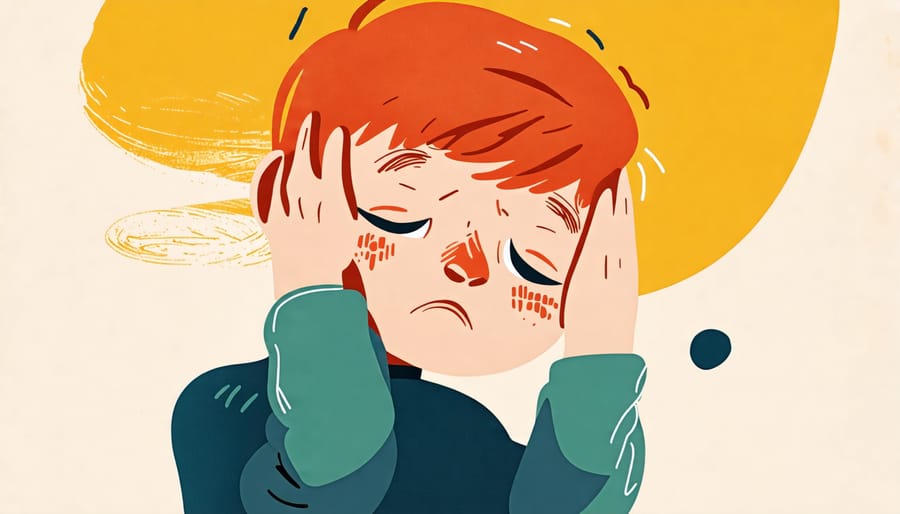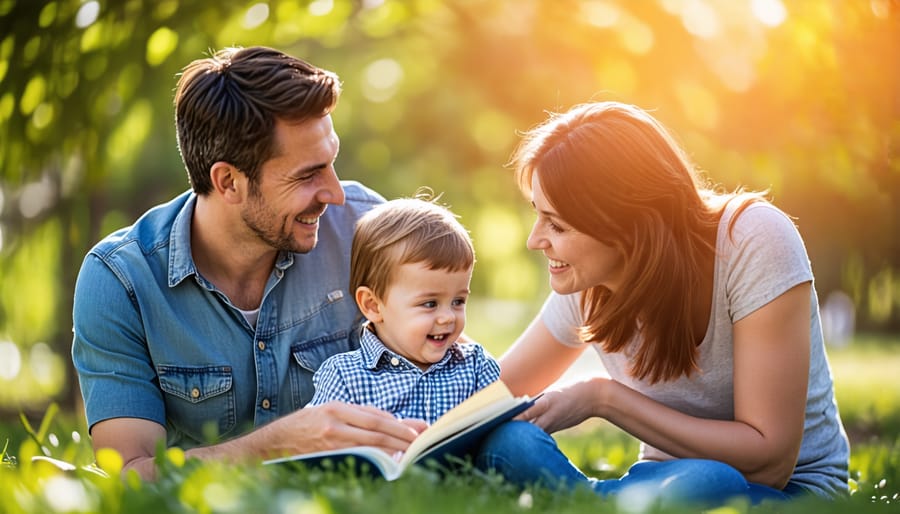Acknowledge the behavioral shifts that can stem from peer pressure by actively observing your child’s social interactions. Regularly engage in open dialogues to allow them to express their feelings and experiences without fear of judgment. Equip them with assertiveness skills, empowering them with tools to confidently say “no” when faced with uncomfortable situations. Foster resilience by encouraging participation in diverse activities where they can develop skills and interests independently of their peer group. It’s crucial to recognize the impact of social media influences that may amplify peer pressure, urging you to help them navigate these digital landscapes mindfully.

Emotional and Mental Effects of Peer Pressure
Anxiety and Stress
Peer pressure can significantly impact children, often manifesting as anxiety and stress. When kids feel compelled to conform to their peers’ expectations, they may experience an overwhelming sense of worry about fitting in and being accepted. This pressure can become a constant stressor, causing children to feel unsure of themselves and their choices. A young student once shared how trying to mimic her friends’ behaviors left her feeling anxious and isolated, showing how even subtle peer influences can weigh heavily on a child’s mental well-being. According to experts, such as child psychologist Dr. Jane Smith, children under peer pressure may internalize stress, leading to physical symptoms like headaches or stomachaches, as well as emotional fluctuations like irritability or sadness. It’s crucial for parents, teachers, and healthcare professionals to recognize these signs and foster open, non-judgmental communication. Encouraging children to express their feelings and assuring them that it’s okay to be different can greatly alleviate the anxiety stemming from peer pressure. In doing so, we can help children build resilience and maintain their mental health.

Impact on Self-Esteem
Peer pressure can significantly impact a child’s self-esteem, shaping their sense of self-worth and identity. When children face pressure from peers to conform to specific behaviors or attitudes, they may experience anxiety or doubt about their own choices and values. This internal conflict can erode self-esteem, leading them to question if their true selves are acceptable or worthy. For instance, a child who feels pressured to change their appearance or interests to fit in might start doubting their intrinsic qualities. Over time, this could result in diminished self-worth and a reluctance to express individuality.
Experts emphasize that experiencing peer pressure can, in some cases, make children overly reliant on external validation, seeking approval as a substitute for genuine self-assurance. On the other hand, supportive peer interactions are crucial and can foster confidence and self-esteem. Therefore, open communication and understanding from parents, teachers, and healthcare professionals can provide the reassurance and support that children need to navigate these challenges successfully.
Social Isolation or Overconformity
Peer pressure can lead children to either withdraw from social settings or conform excessively to group norms, impacting their well-being. When faced with pressure, some children might isolate themselves, choosing solitude over stressful interactions. This can create a cycle of loneliness and anxiety, making reintegration difficult. On the other hand, overconforming might lead a child to suppress their true self to fit in, losing sight of their individuality. Both responses can have lasting effects on self-esteem and emotional health. Encouraging open dialogue and reassuring children that they are valued can help them navigate these pressures and foster a sense of belonging.
Behavioral Effects of Peer Pressure
Risky Behaviors
Peer pressure can have significant impacts on a young person’s decision-making, often leading them toward risky behaviors. Many kids face the allure of fitting in, prompting them to try activities like vaping, drinking, or experimenting with drugs for acceptance. These substances may seem like a harmless social activity, but they have serious consequences on mental health and development. Research shows that engaging in activities such as vaping can affect one’s mental health and lead to addictions. Children may not entirely understand these risks, which is why they rely heavily on adults for guidance. Consider the story of Jamie, a high schooler who felt compelled to vape because all her friends were doing it. She soon found herself struggling with anxiety and school performance issues. Healthcare professionals, teachers, and parents play a vital role in providing supportive environments where children feel secure discussing these pressures. Encouraging open dialogue and fostering resilience can empower them to make healthier choices, easing the overwhelming influence of peer pressure.
Academic Performance
Peer pressure can significantly impact a child’s academic performance, both positively and negatively. When surrounded by peers who value education and encourage learning, children might feel motivated to excel in their studies, striving to meet the standards set by their friends. This positive peer influence can foster a love for learning and instill a strong work ethic. However, the flip side is also true. Negative peer pressure might lead a child to prioritize socialization over academics, resulting in decreased focus and motivation. Instances where a child feels compelled to fit in by neglecting schoolwork can be challenging, impacting grades and overall academic achievement.
Personal stories often highlight how peer pressure affects academic life. Take Emily, a bright student who found herself skipping homework to hang out with friends who didn’t prioritize school. However, with guidance from supportive teachers and understanding parents, she found a balance and re-engaged with her studies. It’s crucial for adults to recognize these dynamics and offer an empathetic ear, creating an environment where children feel comfortable discussing these pressures without judgement. By fostering open communication, parents, teachers, and healthcare professionals can help children navigate peer pressure healthily and maintain their academic path.
Strategies for Parents and Educators

Encouraging Open Communication
Creating a safe space for open communication about peer pressure is crucial in supporting children’s mental health. By fostering an environment where children feel free to express their concerns and feelings, they are better equipped to handle external influences. Encourage children to share by actively listening without judgment, which helps build trust. Remind them that everyone faces peer pressure at some stage, and it’s okay to have these conversations.
Parents and teachers can draw from personal stories and experiences to illustrate how they managed peer pressure, which can make kids more comfortable in opening up about their own lives. Engaging children in discussions and activities that nurture well-being can also empower them to develop the skills needed to resist negative influences. Regular check-ins and creating an open dialogue about their day-to-day experiences teach children that their voices matter, ensuring they never feel alone in navigating these challenges. Not only does this enhance their emotional resilience, but it also strengthens their relationships with supportive adults around them.
Building Resilience
Helping children develop strong self-esteem and resilience against peer influences is key to ensuring their mental well-being. One effective strategy is to encourage open communication. Let your child know it’s okay to express their feelings and concerns without fear of judgment. Listening actively can empower them to make choices aligned with their values. Additionally, fostering a positive self-image helps buffer against negative peer pressure. Praise efforts over outcomes and acknowledge their strengths. This builds confidence and assures them they are valued. Involving children in group activities like sports or clubs can also teach teamwork and social skills, vital for resisting undue peer influences. According to child psychologist Dr. Emily Harper, these foundational experiences “equip children with the tools needed to stand firm in their convictions.” For more strategies on how to nurture your child’s inner strength, explore building resilience. Remember, creating a supportive environment at home is essential for developing these critical life skills.
Educating on Peer Pressure
Educating children about peer pressure is crucial for their mental and emotional health. By understanding the different forms peer pressure can take, children are better prepared to make informed decisions. Engaging conversations with parents and teachers can demystify the pressures children face, empowering them to stand firm in their values. Experts recommend open dialogue and role-playing scenarios to build confidence. Personal stories from peers who have navigated such challenges successfully can serve as powerful examples. By fostering an environment of trust and support, adults can help children recognize and resist negative influences, nurturing resilience and self-assuredness in social settings.
Conclusion
Reflecting on our exploration of peer pressure’s effects on child mental health, it becomes clear that understanding and addressing this issue is crucial for the well-being of our children. Peer pressure can shape children’s mental and emotional development in profound ways, both positively and negatively. It is essential for parents, educators, and healthcare professionals to remain vigilant and engaged, helping children navigate these social challenges with resilience and confidence.
By recognizing the signs of peer pressure and equipping children with effective coping strategies, we can foster environments that encourage positive peer interactions and self-assurance. Sharing stories of personal experiences and incorporating expert opinions, we have underscored the importance of open communication and supportive guidance. These insights are vital for helping children develop a strong sense of self, enabling them to make informed decisions.
In essence, proactive involvement is the cornerstone for empowering children to thrive amidst the pressures they may encounter. As a community of caregivers and educators, let’s commit to being proactive allies for our children, ensuring that they are armed with the tools and understanding needed to grow into emotionally healthy and socially adept individuals. Together, by cultivating a nurturing environment, we can mitigate the negative impacts of peer pressure and promote a future where our children flourish.







